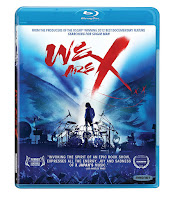the traveler's resource guide to festivals & films
a FestivalTravelNetwork.com site
part of Insider Media llc.
Film and the Arts
New Musical Revivals—“The Golden Apple” at Encores!; Sondheim’s “Pacific Overtures” at Classic Stage Company
- Details
- Parent Category: Film and the Arts
- Category: Reviews
- Published on Saturday, 13 May 2017 20:17
- Written by Kevin Filipski
Book by John Weidman; music & lyrics by Stephen Sondheim
Directed and designed by John Doyle
Performances through June 18, 2017
 |
| Ryan Silverman and Mikaela Bennett in The Golden Apple (photo: Joan Marcus) |
The Golden Apple is the kind of musical Encores! was made for: an almost forgotten show that ran off-Broadway in 1954, then transferred to Broadway—the first musical ever to do so—only to close after a few months. Now, for all of us who’ve never seen or heard it in the ensuing 60-plus years, it’s back for a few performances.
 |
| Geroge Takei (center) in Pacific Overtures (photo: Joan Marcus) |
The Golden Apple
New York City Center, 131 West 55th Street, New York, NY
nycitycenter.org
Pacific Overtures
Classic Stage Company, 136 East 13th Street, New York, NY
classicstage.org
May '17 Digital Week II
- Details
- Parent Category: Film and the Arts
- Category: Reviews
- Published on Wednesday, 10 May 2017 03:18
- Written by Kevin Filipski
Kiju Yoshida—Love + Anarchism
(Shout/Scream Factory)
Mahler Third Symphony—Budapest Festival Orchestra
It takes a village to perform Mahler’s monumental Third Symphony—if not as many as his Eighth (the aptly, and only slightly exaggeratedly, titled “Symphony of a Thousand”)—thanks to a large orchestra, two choirs, alto soloist and a conductor who can marshal all of those forces into a cohesive whole that plays some of Mahler’s most sublimely emotional music.
And that’s what conductor Ivan Fischer does with his Budapest Festival Orchestra, Cantemus Children’s Choir, Chorus of the Bayerischer Rundfunk and singer Gerhild Romberger, all of whom perform brilliantly in this magnificent 95-minute journey through one of Mahler’s most momentous compositions.
Broadway Review—Paula Vogel’s Play “Indecent”
- Details
- Parent Category: Film and the Arts
- Category: Reviews
- Published on Saturday, 06 May 2017 03:54
- Written by Kevin Filipski
 |
| The cast of Indecent (photo: Carol Rosegg) |
May '17 Digital Week I
- Details
- Parent Category: Film and the Arts
- Category: Reviews
- Published on Tuesday, 02 May 2017 23:09
- Written by Kevin Filipski
I Am Not Your Negro
We Are X
Spencer’s Mountain
1963’s The Wheeler Dealers is a harmless and rather pointless Arthur Hiller romantic comedy with an amusing James Garner as a typical Texas millionaire and glamorous Lee Remick as a hard-edged New York gal who falls for him.
1957’s From Hell It Came has one of the most absurd monsters ever—half-man, half-tree—terrorizing whoever crosses its path. It’s so bad that it might be worth a look just for its extreme lousiness, but don’t say I didn’t warn you. The hi-def transfers are excellent.
More Articles...
Newsletter Sign Up


















